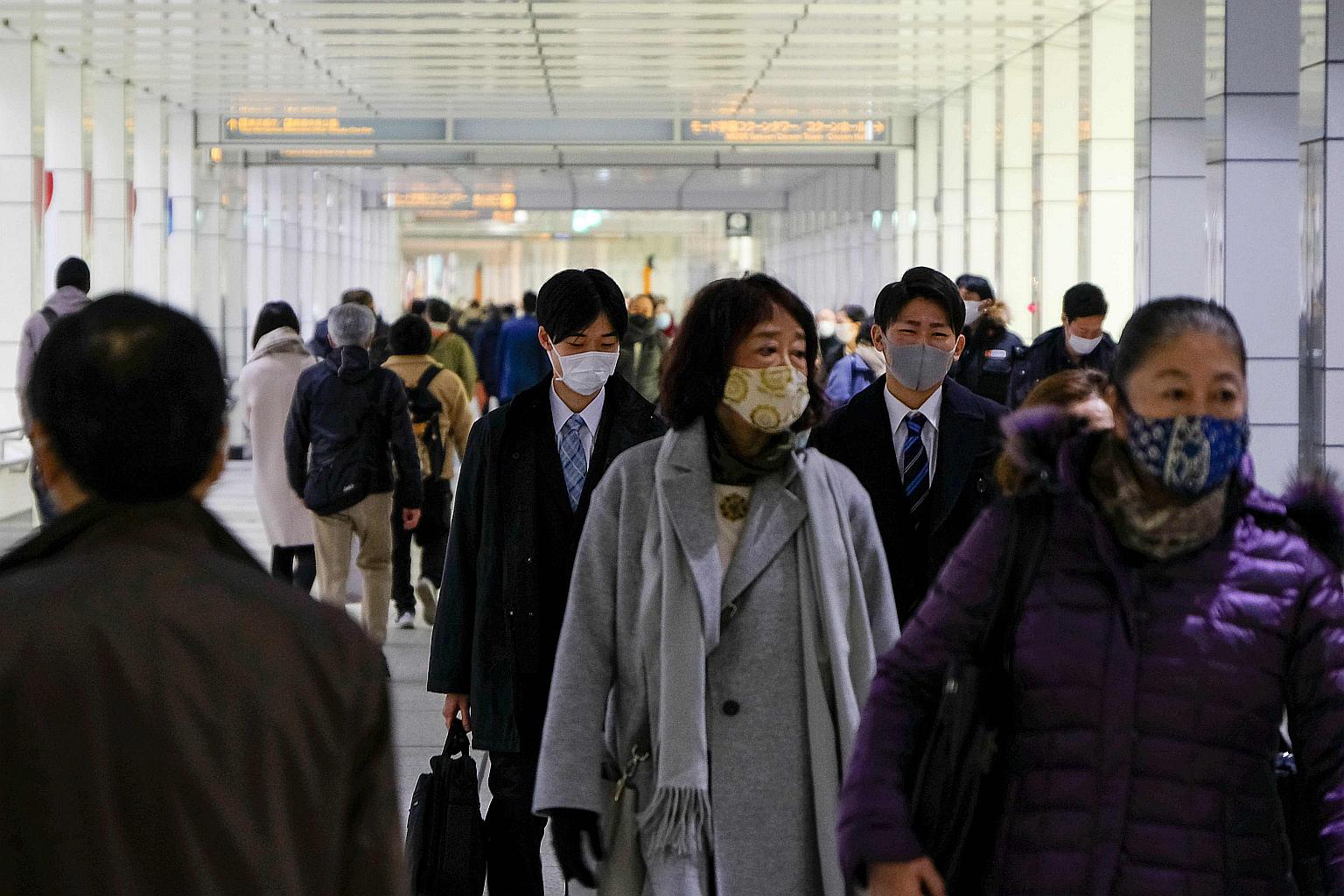News analysis
Will Japan's localised emergency be enough to rein in Covid-19 outbreak?
Sign up now: Get insights on Asia's fast-moving developments

The declaration is set to take effect from Friday to Feb 7 in the capital, Kanagawa, Saitama and Chiba.
PHOTO: AFP
TOKYO - Japan is set to declare a localised state of emergency over Tokyo and three neighbouring prefectures on Thursday (Jan 7), in a move that is being disparaged as too little, too late, and too half-hearted to have any impact.
The localised state of emergency is set to take effect from Friday to Feb 7 in the capital, Kanagawa, Saitama and Chiba.
The measure comes as the Tokyo Olympic Games are set to flag off in less than 200 days. But questions are fast rising over whether Japan can do enough to instil confidence domestically and internationally that a safe Games can be held.
Prime Minister Yoshihide Suga, who has long been reluctant to issue any emergency decree due to the economic impact, has had to back-pedal after Covid-19 infection numbers rose as quickly as his support ratings tumbled.
Japan on Wednesday busted its one-day national tally with at least 6,001 new cases. This topped the previous high of 4,913 set on Tuesday.
The surge was led by Tokyo, with 1,591 fresh cases on Wednesday topping the previous high of 1,337 on New Year's Eve. But other statistics in the capital make for grim reading: The number of patients in serious condition stood at a new high of 113, while the seven-day average soared to 1,071 cases.
Kanagawa, to the south of Tokyo, set its second-highest tally of 591 cases on Wednesday. Saitama to the north and Chiba to the east both rewrote new highs with 394 and 311 cases each. Worse still, more than 50 per cent of the new cases in Tokyo, Kanagawa and Chiba have no known transmission routes.
These four prefectures are home to a total of 36.8 million people - one of the world's most densely populated areas.
Yet the state of emergency is expected to be highly limited in scope and potentially lacking in teeth. It will likely not encompass any facility closures, keeping open schools, department stores, sports venues and Internet cafes. Events can still be held, with reduced capacity.
Dining establishments, bars, karaoke boxes and pachinko parlours can still open but must close by 8pm.
Experts are pessimistic that this will be enough to bring infections in the capital region down to manageable levels within one month.
In other metropolitan areas, infections are also fast rising, with new one-day records set on Wednesday in Osaka (560), Aichi (364) and Fukuoka (316). Rural areas are likewise seeing new highs, like Tochigi (131), Gifu (102) and Miyazaki (80).
"The government should look into the possibility of expanding the emergency declaration nationwide," said Japan Medical Association president Toshio Nakagawa.
Dr Shigeru Omi, who heads the government advisory panel, was also sceptical that the situation can be brought under control within one month.
A study by Kyoto University epidemiologist Hiroshi Nishiura suggested that it could take two months for the daily new cases in Tokyo to fall below 100 even if more aggressive measures were taken.
Mr Suga said on Monday during his New Year press conference that preparations for the Olympics are progressing steadily, though this note of optimism comes across as discordant to the majority of Japanese who either want the Games postponed again or cancelled.
The fact that there is still heated debate amid the spiralling crisis exemplifies the risks of Japan's erstwhile fluid approach to - as the Asahi Shimbun criticised - "wait and see and hope for the best".
Unlike other nations, Japan has not laid out specific anti-infection limits, such as the number of people allowed in gatherings, that will kick in when barometers, such as the proportion of unlinked cases, are hit.
Many Twitter users said the measures will prolong everyone's agony. One, by the name Kou, said: "With such a perfunctory state of emergency, holding the Olympics will be impossible."


